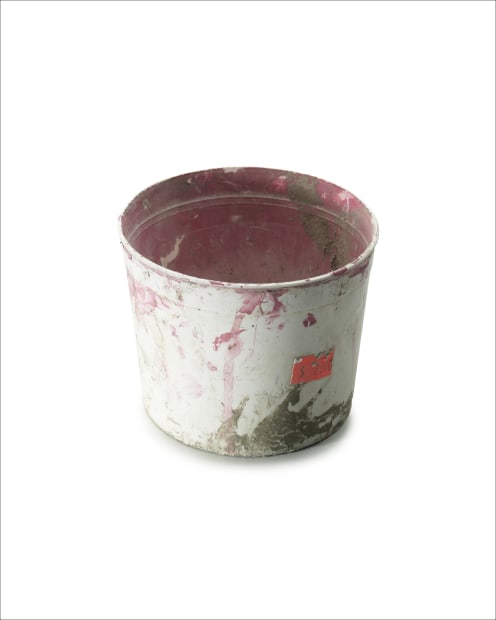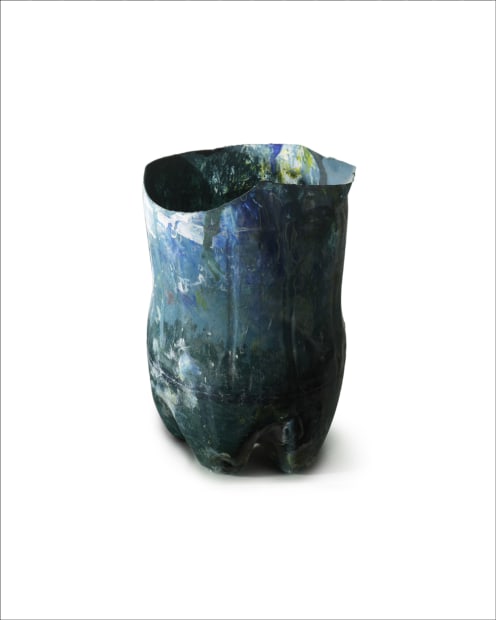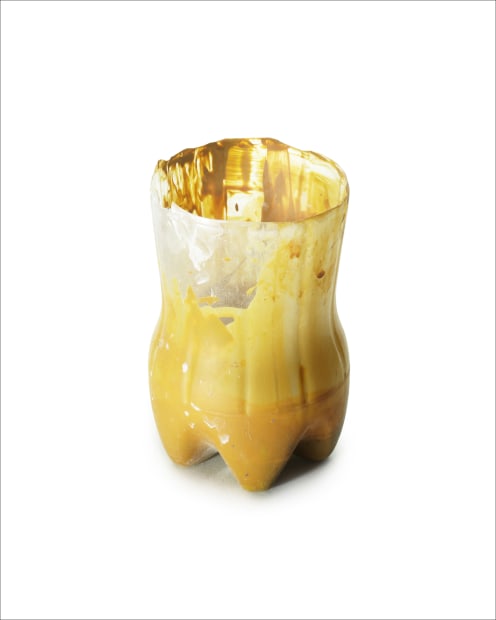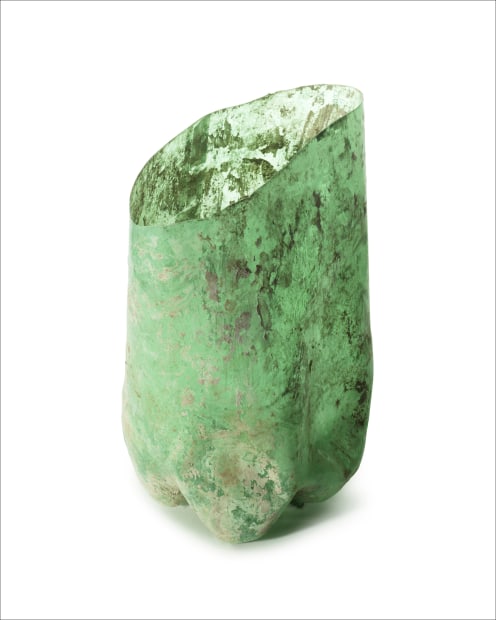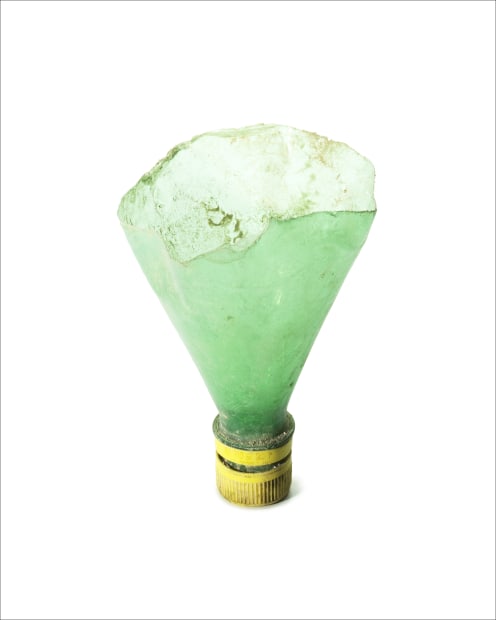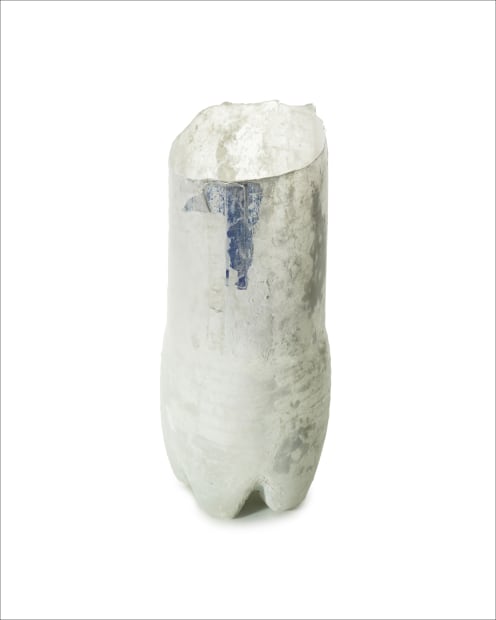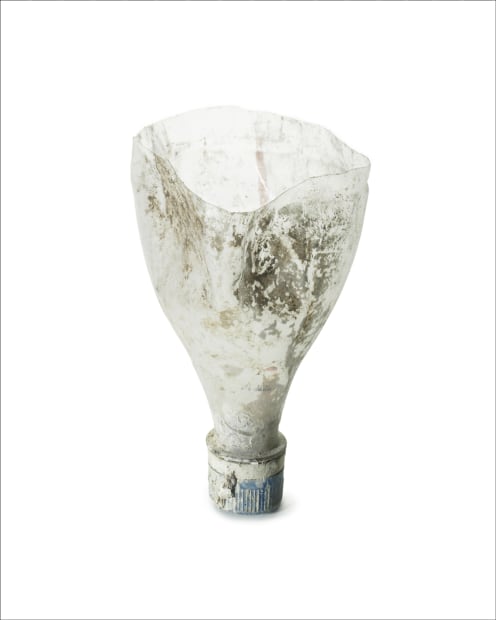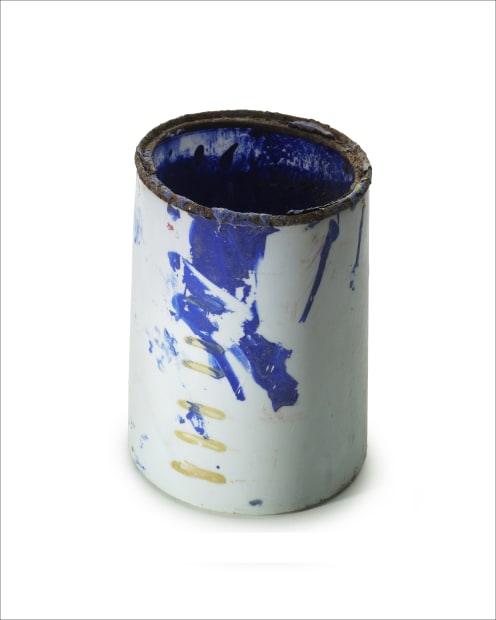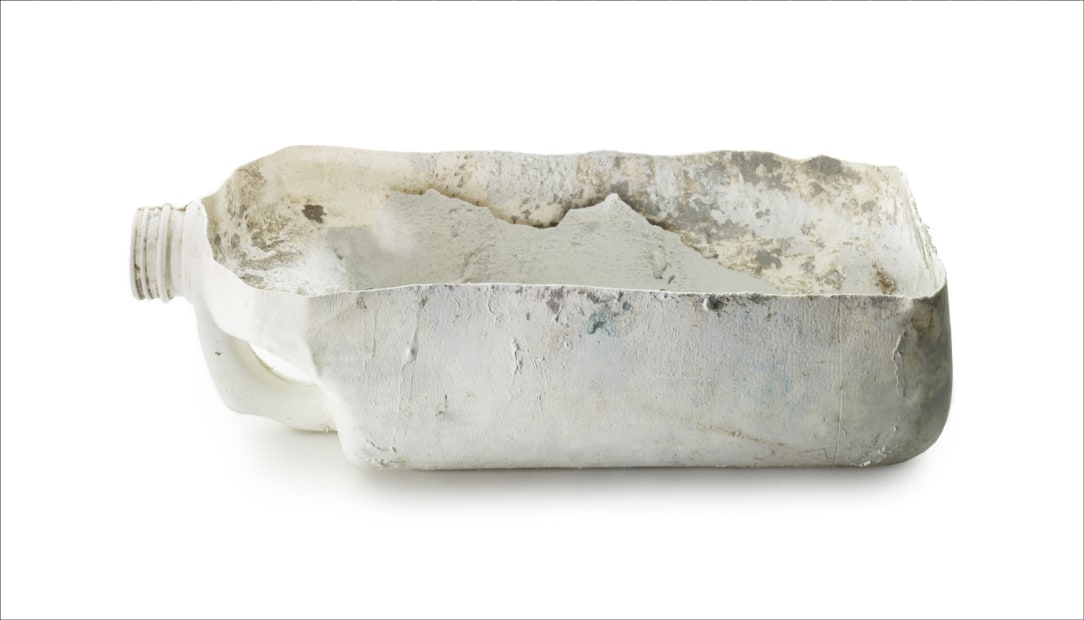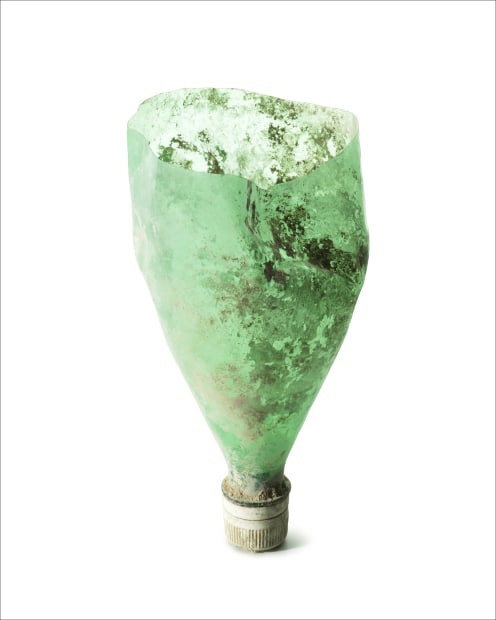Statement by Chuck Ramirez:
"The brooms and recycled objects photographs serve as ethnographical documents from several of my experiences visiting the Pacific coast of Mexico. While visiting friends I recognized a stark contrast between the pristine architecture of the area’s sprawling villas and vacation homes and the humble domestic items used to keep them clean. Handymen utilized cracked plastic bottles to hold paint for touching up walls; women scrubbed dirt floors with brooms worn down to nearly nothing. Although I had seen people like these many times in my travels across Mexico and the border region, it was not until I saw them against the contrast of the tourist oriented beach community, that I fully appreciated their industriousness. I also saw a unique sense of aesthetic and beauty in these objects and began to acquire them to take back to the United States to be photographed.
When I initially approached the housekeepers and construction workers who owned these items, they laughed at me and couldn’t understand why I would want their gnarled and broken cleaning supplies. After I explained that I was an artist they would relent, but I still felt as if they probably wrote me off as crazy. This attitude about “stuff” is precisely why I wanted the objects to begin with. A broom may be meticulously taken care of and given a thousand and one purposes in a household, but at the end of the day, it is just a broom. Materialism is simply not a part of the equation.
In the United States “consumer culture” permeates every aspect of our daily lives. Material objects are disposed as quickly as they are acquired, with aesthetic value often trumping function or necessity. In many ways, our personal economic power is advertised to the world around us by what we own- and how we treat it. American consumerism is defined as the act of equating personal happiness with consumption and the purchase of material possessions. A 1998 United Nations Development Program reported that Americans, as members of the 20% of the world’s wealthiest population, consume a disproportionate amount of the world’s resources.
Not only are Americans responsible for a significant portion of the world’s waste, but they are slow to any significant reforms in their consumption practices. Although in recent years the “green” movement has picked up speed, many people have yet to understand the impact their actions have on the environment. I myself have been guilty of a short-sighted concept of my contribution to global pollution. Like many other Americans I have frequently elected for convenience and ease over environmentally conscious choices. The practice of a ceaseless, compulsive consumption is something that is so engrained in American culture that most often, we forget it is even there.
In Mexico quite the opposite occurs. Before the “green” movement had even begun to sprout, economically challenged people south of the border looked for creative means of maximizing resources while minimizing cost. This meant not throwing things away until it was absolutely necessary and even then, if a creative new use for an object was found, it was immediately implemented. A broken broom head may become a doorstop or an old handle may be a new window prop. Though I would be remiss to imply that these were consciously environmentally oriented decisions, the results are the same as those in American households where recycling is a primary goal- waste is reduced and negative impact on the environment is minimized."
"The brooms and recycled objects photographs serve as ethnographical documents from several of my experiences visiting the Pacific coast of Mexico. While visiting friends I recognized a stark contrast between the pristine architecture of the area’s sprawling villas and vacation homes and the humble domestic items used to keep them clean. Handymen utilized cracked plastic bottles to hold paint for touching up walls; women scrubbed dirt floors with brooms worn down to nearly nothing. Although I had seen people like these many times in my travels across Mexico and the border region, it was not until I saw them against the contrast of the tourist oriented beach community, that I fully appreciated their industriousness. I also saw a unique sense of aesthetic and beauty in these objects and began to acquire them to take back to the United States to be photographed.
When I initially approached the housekeepers and construction workers who owned these items, they laughed at me and couldn’t understand why I would want their gnarled and broken cleaning supplies. After I explained that I was an artist they would relent, but I still felt as if they probably wrote me off as crazy. This attitude about “stuff” is precisely why I wanted the objects to begin with. A broom may be meticulously taken care of and given a thousand and one purposes in a household, but at the end of the day, it is just a broom. Materialism is simply not a part of the equation.
In the United States “consumer culture” permeates every aspect of our daily lives. Material objects are disposed as quickly as they are acquired, with aesthetic value often trumping function or necessity. In many ways, our personal economic power is advertised to the world around us by what we own- and how we treat it. American consumerism is defined as the act of equating personal happiness with consumption and the purchase of material possessions. A 1998 United Nations Development Program reported that Americans, as members of the 20% of the world’s wealthiest population, consume a disproportionate amount of the world’s resources.
Not only are Americans responsible for a significant portion of the world’s waste, but they are slow to any significant reforms in their consumption practices. Although in recent years the “green” movement has picked up speed, many people have yet to understand the impact their actions have on the environment. I myself have been guilty of a short-sighted concept of my contribution to global pollution. Like many other Americans I have frequently elected for convenience and ease over environmentally conscious choices. The practice of a ceaseless, compulsive consumption is something that is so engrained in American culture that most often, we forget it is even there.
In Mexico quite the opposite occurs. Before the “green” movement had even begun to sprout, economically challenged people south of the border looked for creative means of maximizing resources while minimizing cost. This meant not throwing things away until it was absolutely necessary and even then, if a creative new use for an object was found, it was immediately implemented. A broken broom head may become a doorstop or an old handle may be a new window prop. Though I would be remiss to imply that these were consciously environmentally oriented decisions, the results are the same as those in American households where recycling is a primary goal- waste is reduced and negative impact on the environment is minimized."

